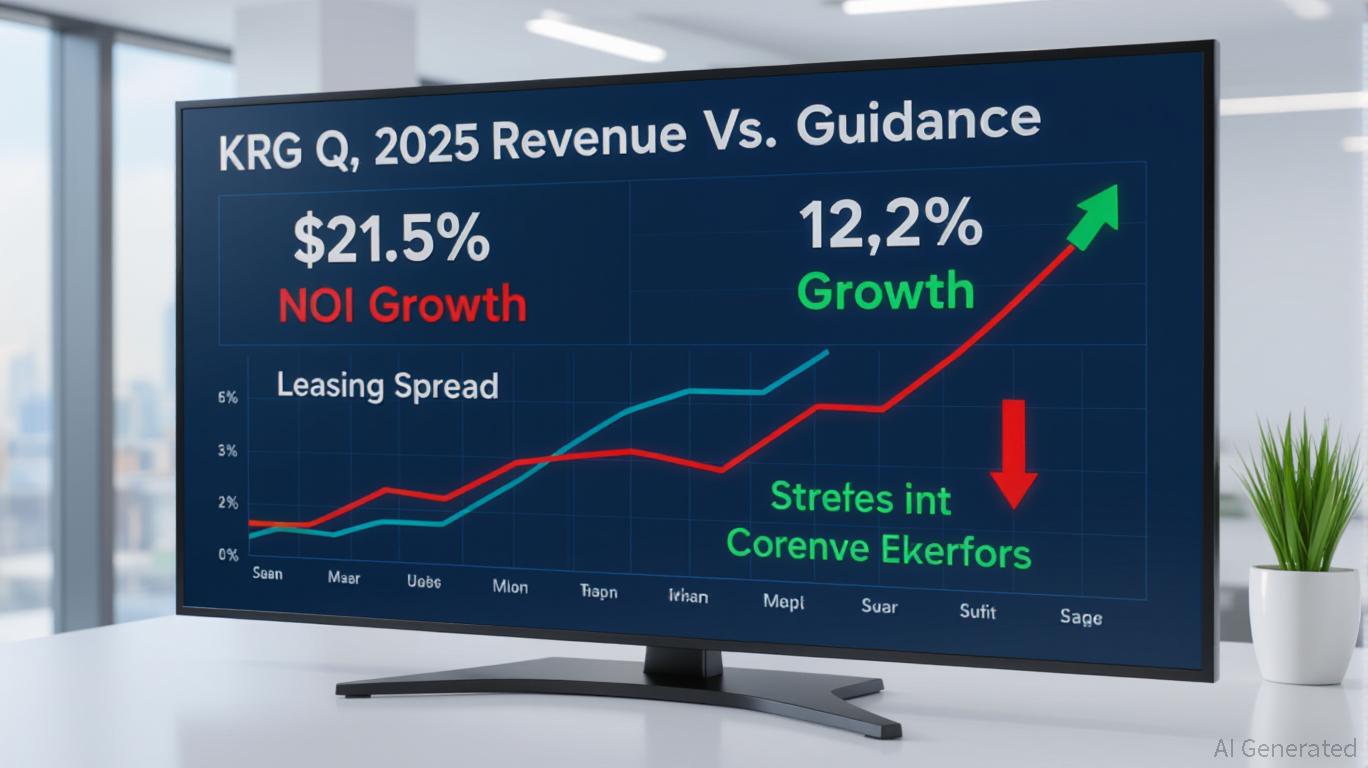YFI Declines by 0.06% as Lock-Up Deals and Market Fluctuations Persist
- Yearn Finance (YFI) fell 0.06% to $4,742 on Nov 2, 2025, amid expiring lock-up agreements for Pineapple Financial and Range Capital shares. - Lock-up restrictions, designed to stabilize post-IPO/merger markets, ended after 181 days for Pineapple and 600,000 units for Range Capital, boosting liquidity. - YFI's decline showed no direct link to unlocking events, with analysts attributing its 41.01% annual drop to broader crypto market dynamics and macroeconomic factors. - Market volatility highlights interc
As of November 2, 2025,
Lock-Up Expirations Drive Market Fluctuations
The end of lock-up periods on November 2, 2025 for Pineapple Financial Inc. and Range Capital Acquisition Corp II has led to heightened trading activity. Pineapple Financial’s lock-up, which spanned 181 days from May 5 to November 2, restricted the trading of certain options, including those convertible to common stock. Likewise, 600,000 units of Range Capital Acquisition Corp II were under lock-up from October 2 through November 2, limiting the tradability of its shares and associated instruments during this time.
Such lock-up agreements are intended to curb insider selling and help maintain price stability after IPOs or mergers. Their expiration often leads to expectations of increased trading. Yet, for YFI, the token’s price
No Clear Link Between Unlock Events and YFI Price
Although the timing overlaps, there is no clear evidence that the end of these lock-up periods caused the 0.06% dip in YFI over the past day. The token’s recent movement appears to be driven more by technical indicators and macroeconomic trends than by unlocking events. Factors such as overall crypto market sentiment, regulatory shifts, and general risk aversion seem to play a larger role, though these were not specifically covered in the news summary.
Market experts have not released forecasts connecting YFI’s near-term price changes to these equity unlocks. Still, the simultaneous occurrence of these events underscores the growing ties between traditional and digital asset markets, especially regarding how liquidity constraints impact both stocks and tokens.
Backtesting Approach
One possible backtesting method is to analyze YFI’s performance after experiencing 10% or greater declines, a common metric for assessing recovery and volatility. The objective is to see whether YFI typically rebounds or continues to lag in the 30 to 90 days following such drops. This involves a time-based review using daily closing prices from 2022-01-01 to 2025-11-02.
The process includes pinpointing each instance of a 10% fall and tracking the subsequent price changes over the next 30, 60, and 90 days. The findings would reveal if the token tends to recover, retest previous lows, or extend its downward trend after sharp corrections. This is particularly relevant given YFI’s 41.01% drop year-to-date, indicating a prolonged bearish phase, even though short-term rallies may still occur.
However, conducting this backtest is currently not possible due to data access issues, as the platform cannot retrieve historical price information for “YFI” or similar tickers. To proceed, one would need to either confirm the correct ticker format (such as “YFI-USD” or “YFIUSDT”) or manually upload a historical price dataset in a compatible format like CSV or JSON.
Disclaimer: The content of this article solely reflects the author's opinion and does not represent the platform in any capacity. This article is not intended to serve as a reference for making investment decisions.
You may also like
Kite (KITE) Price Forecast and Market Outlook After Listing: Assessing Value, Institutional Engagement, and Near-Term Volatility Concerns
- Kite Realty (KRG) reported $4.82M Q3 2025 revenue shortfall despite 2.1% NOI growth and 12.2% leasing spreads. - Institutional ownership at 90.81% with $1.2B liquidity supports strategic grocery-anchored retail focus showing 56% leasing spreads. - Analysts cut price targets to $23-$26 while industry faces "F" rating due to macroeconomic risks and lack of sustainable earnings.

MMT Token TGE: A Major Debut with Notable Market Influence and Distinctive Tokenomics
- Binance's Momentum (MMT) TGE on Nov 4, 2025, saw an 885% price surge to $0.8859 within hours. - The TGE followed a 376x oversubscribed Binance Prime sale and included a 0.75% airdrop to BNB holders. - MMT's hybrid tokenomics combine inflationary potential with deflationary buybacks (20% marketplace fees, 15% quarterly profits). - Cross-chain strategy (BSC/Sui) and real-world asset integration aim to attract institutional/retail investors despite inflation risks.

Hyperliquid News Today: Hyperliquid's BLP and HIP-3 Indicate a Fundamental Change in DeFi Structure

Aster DEX Experiences Rapid Growth: Advancements in On-Chain DeFi and Improved User Access Attract Institutional Attention
- Aster DEX's 2025 upgrades transformed ASTER token into functional collateral for perpetual trading, enabling $800 leveraged positions per $1,000 ASTER. - Institutional validation followed CZ's $2M ASTER purchase and Coinbase's roadmap inclusion, coinciding with 30% price surge and $2B 24-hour trading volume. - 5% fee discounts and cross-chain expansion (BNB Chain, Ethereum , Solana , Arbitrum) enhanced accessibility, creating a flywheel effect through token retention and liquidity diversification. - $5.4
